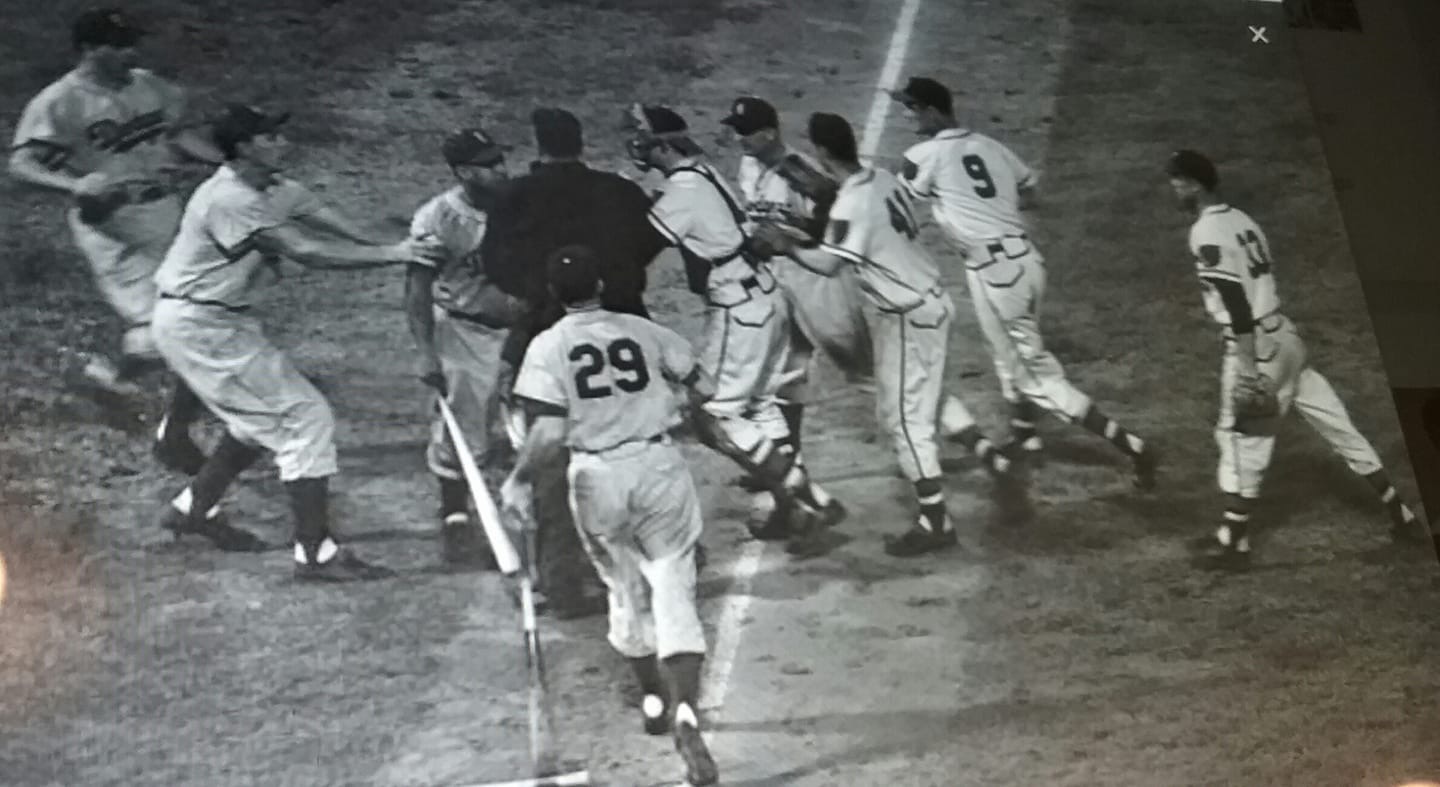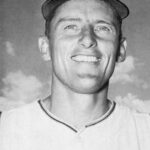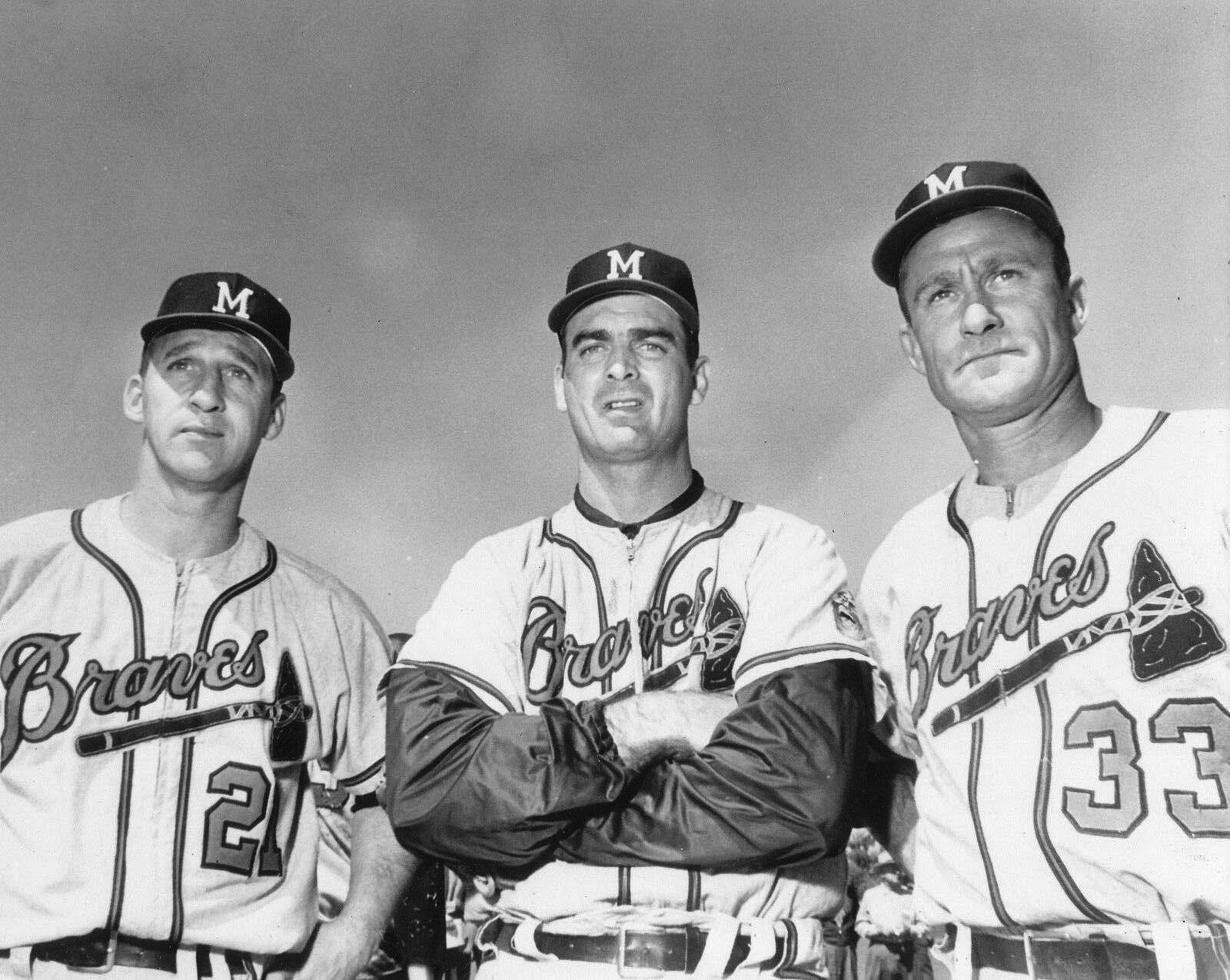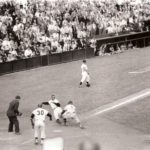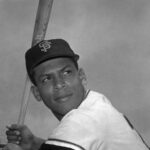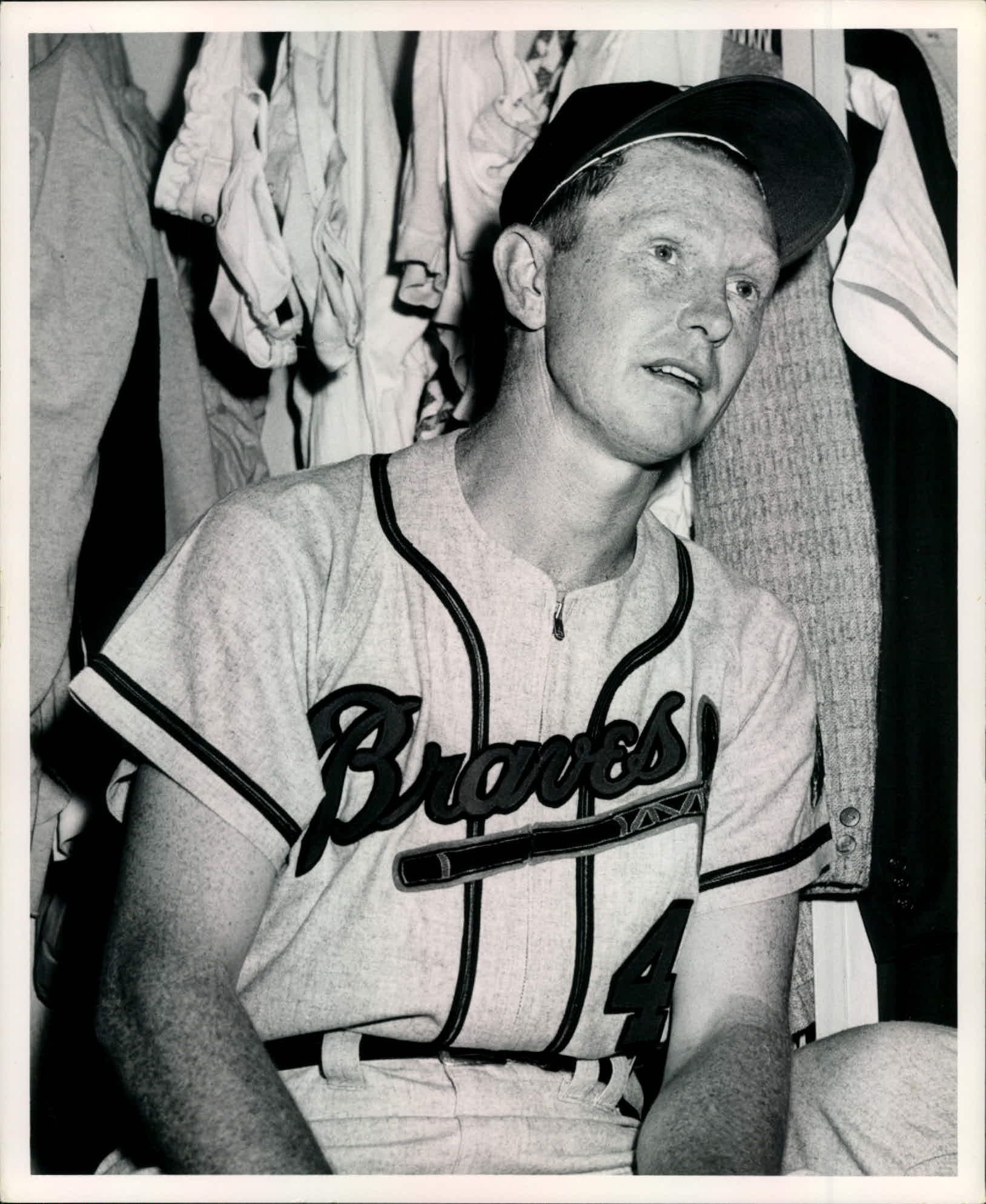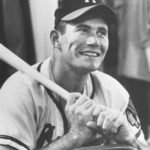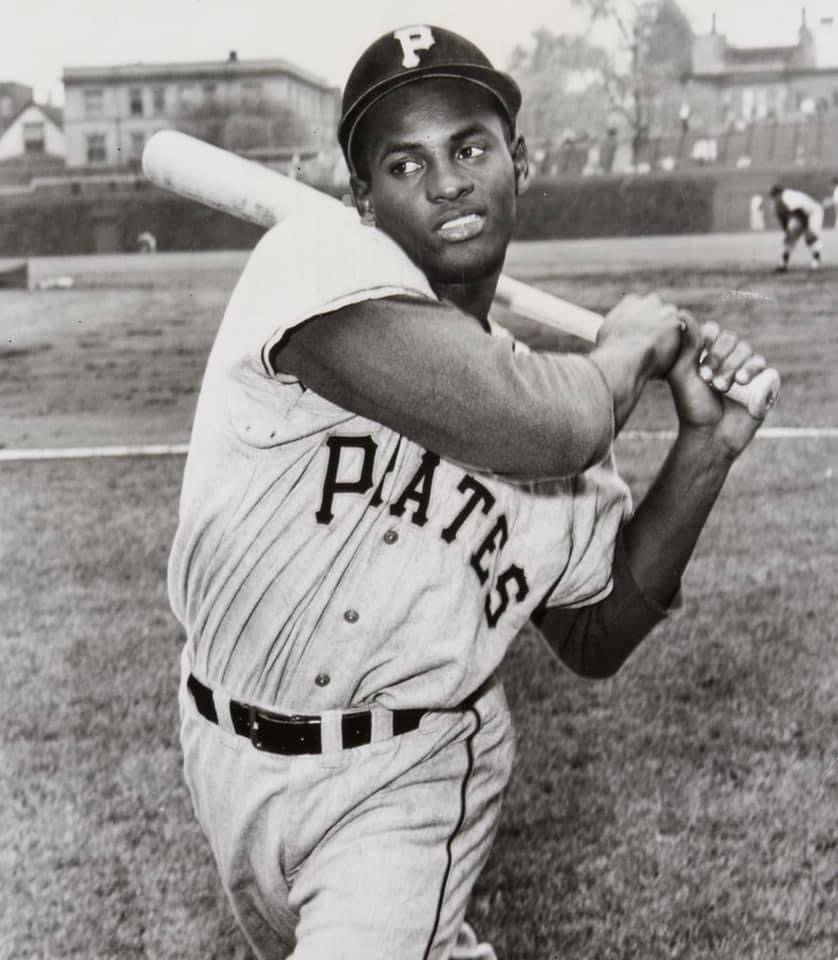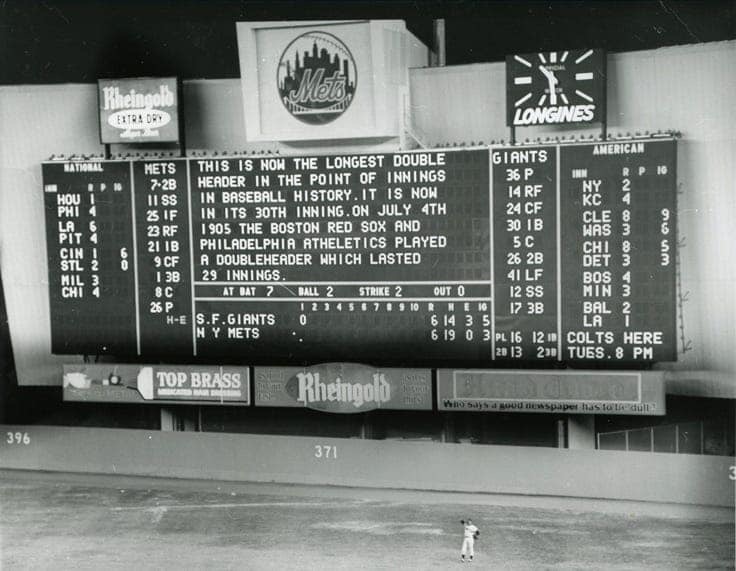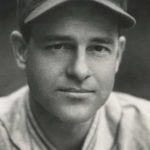Del Crandall
Position: Catcher
Bats: Right • Throws: Right
6-1, 180lb (185cm, 81kg)
Born: March 5, 1930 in Ontario, CA
Died: May 5, 2021 in Mission Viejo, CA
Buried: Loma Vista Memorial Park, Fullerton, CA
High School: Fullerton Union HS (Fullerton, CA)
Debut: June 17, 1949 ( 10,641st in major league history)
vs. CIN 0 AB, 0 H, 0 HR, 0 RBI, 0 SB
Last Game: September 25, 1966
vs. KCA 0 AB, 0 H, 0 HR, 0 RBI, 0 SB
Full Name: Delmar Wesley Crandall
View Player Info from the B-R Bullpen
View Player Bio from the SABR BioProject
Notable Events and Chronology
Biography
Teams Del Crandall Managed
Milwaukee Brewers (1972-1975)
Seattle Mariners (1983-1984)
Where does Del Crandall rank among baseball greats?
Del Crandall ranks #38 among the Top 50 all-time at C. Rankings
Full Biography
Delmar Wesley Crandall (born March 5 1930 in Ontario, California) is a former catcher and manager (baseball) in Major League Baseball who played most of his career with the Atlanta Braves. Considered one of the National League’s top catchers during the 1950s and early 1960s, he led the league in assist (baseball) a record-tying six times and in fielding percentage four times, winning four of the first five Gold Glove Awards given to an NL catcher, and tied another record by catching three no-hitters. He retired with the fourth most home runs by an NL catcher, and his career .404 slugging average also placed him among the league’s top ten receivers. He ended his career among the major league career leaders in putouts (4th, 7352), total chances (8th, 8200) and fielding percentage (5th, .989) behind the plate, and ranked fourth in NL history in games caught.
Crandall was only 19 when he first played in a major league game, with the 1949 Boston Braves. He appeared in 146 games for Boston in 1949-50 before entering military service during the Korean War. When his two-year hitch was over in March 1953, the Braves departed Boston for Milwaukee, where – benefitting from a powerful offense featuring Hank Aaron, Eddie Mathews and Joe Adcock – they soon became both successful on the field and phenomenally popular off it.
Crandall seized the regular catcher’s job in 1953 and held it for eight years, handling star Braves pitchers such as left-hander Warren Spahn and right-handers Lew Burdette and Bob Buhl. The Braves won NL pennants in 1957 and 1958, also finishing in second place five times between 1953 and 1960, and captured the 1957 World Series championship – the franchise’s first title since 1914; though he only batting average .211 in the 1957 Series against the New York Yankees, Crandall had a solo home run for the Braves’ last tally in a 5-0 win in the deciding Game 7.
Though rarely among the league leaders in offensive categories, he finished 10th in the 1958 MLB Most Valuable Player Award voting after hitting .272, tying his best mark to that point, with career highs in double (baseball) and base on balls; he also led the league in putouts, assists and fielding average, and won his first Gold Glove. In the 1958 World Series, again against the Yankees, he hit .240; he slugged another Game 7 solo homer, tying the score 2-2 in the 6th inning, though the Yankees went on to score four more runs to win the game and the Series.
Crandall was a superb defensive player with a strong arm; he was selected as an Major League Baseball All-Star Game eight times: 1953-1956, 1958-1960, 1962. A powerful right-handed hitter, he topped the 20 home run mark three times. After having caught Jim Wilson (pitcher)’s no-hitter on June 12, 1954, he added another pair in 1960 – by Burdette on August 18, and by Spahn a month later on September 16; amazingly, all three were against the Philadelphia Phillies. Crandall averaged 125 games caught during the peak of his career, and he paid the price, missing most of the 1961 season due to shoulder trouble, which gave Joe Torre his opportunity to break in.
While Crandall did come back to catch 90 games in 1962 – hitting a career-high .297, making his final NL All-Star squad and winning his last Gold Glove – he was soon replaced by Torre as the Braves’ regular catcher. In 1962 he also moved ahead of Roy Campanella, setting the NL record for career fielding percentage; however, Johnny Roseboro would edge ahead of him before his career ended.
After 1963, he was traded by the Braves to the San Francisco Giants in a seven-player deal; he played a backup role in his final three major league seasons with the Giants (1964), Pittsburgh Pirates (1965), and Cleveland Indians (1966). In 1,573 games over 16 seasons, he finished with a batting average of .254 with 179 home runs; his 175 HRs in the NL trailed only Campanella (242), Gabby Hartnett (236) and Ernie Lombardi (190) among the league’s catchers. His 1430 games caught in the NL trailed only Al Lopez, Hartnett and Lombardi.
Crandall eventually turned to managing, and piloted two American League clubs, the Milwaukee Brewers (1972-75) and the Seattle Mariners (1983-84). In each case he was hired to try to right a losing team in mid-season, but he never enjoyed a winning campaign with either team and finished with a managing record of 364-469 (.437). In between those AL stints, he was a highly successful manager of the Los Angeles Dodgers’ top farm club, the Albuquerque Dukes of the AAA Pacific Coast League, and he remained in the Dodger organization as a special catching instructor well into his 60s.
He also worked as a broadcaster with the Chicago White Sox in 1985 and with the Brewers from 1992-94. Crandall appeared on the cover of Sports Illustrated twice: Once by himself, and once with a group of other players.
Crandall was ejected in the first inning of his very first major league game, while catching, by Hall of Fame umpire Jocko Conlan for arguing balls and strikes after only two pitches had been thrown and both had been called balls. According to Crandall, they were strikes, and when he questioned Jocko about them, Conlan called time out, walked around to the front of home plate, turned around to face him, took out his brush, and while wiping the plate said “Ain’t no busher gonna come up here and tell me how to call a game”. Crandall told Conlan where he could “shove” his “busher” and Conlan immediately heaved him. The Boston Braves had flown his parents out for the game and Del said he will never forget the astonished look on his mothers face as he walked past her front row seat on his way to the dugout. He states that every time he ran into Conlan thereafter, that Conlan claimed credit for “straightening him out”. A pop punk band from Connecticut named itself “The Del Crandalls” after him; they sent their namesake a tape and a flyer promoting one of their shows, and Crandall sent his approval.
Born
Delmar Wesley Crandall was born on March 5, 1930, in Ontario, CA.
Hall of Fame Voting
Year Election Votes Pct
1976 BBWAA 15 3.9%
1977 BBWAA 8 2.1%
1978 BBWAA 6 1.6%
1979 BBWAA 9 2.1%
Post-Season Appearances
1957 World Series
1958 World Series


